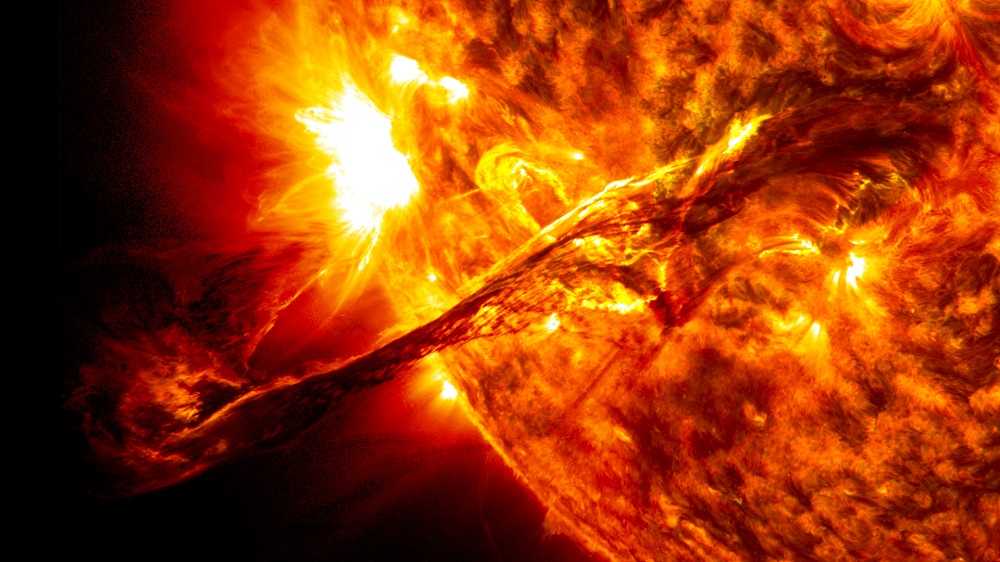Intelsat working to regain control of Galaxy 15 satellite

TAMPA, Fla. — Intelsat said Aug. 19 it has lost control of its Galaxy 15 broadcast satellite after it was likely hit by a geomagnetic storm.
High space weather activity likely knocked out onboard electronics needed to communicate with the satellite, Intelsat said, and keep it locked in its geostationary orbit slot at 133 degrees West.
“The satellite is otherwise operating nominally, keeping earth pointing with all payload operations nominal,” Intelsat spokesperson Melissa Longo said.
While Intelsat is working to restore its ability to command the satellite, Longo said the company expects all customers to “have service continuity” until its Galaxy 33 replacement arrives in November.
Intelsat ordered Galaxy 33 from Northrop Grumman in 2020, and SpaceX is slated to launch the satellite with Galaxy 34 on a Falcon 9 from Cape Canaveral in October.
Galaxy 15 was launched in 2005 and was built by Orbital Sciences Corporation, which is now part of Northrop Grumman.
Intelsat temporarily lost the ability to command Galaxy 15 five years after launch following an anomaly that was also pinned on unusually violent solar activity.
Longo said Intelsat is offloading customers to another satellite “to ensure service continuity,” and “will continue to try to regain command once they are off so we can eventually deorbit it.”
Galaxy 15 carries 24 C-band transponders serving media customers in North America.
It also has an L-band payload that was previously used by the U.S. Federal Aviation Administration to relay GPS information to aircraft to improve navigational accuracy. Intelsat said this L-band payload is no longer in use after the FAA service migrated to Galaxy 30 soon after that satellite was launched in 2020.
Tzu-Wei Fang, a space scientist at NOAA’s Space Weather Prediction Center (SWPC), warned Aug. 8 that the relatively benign space weather conditions of the last several years are ending.
A new solar activity cycle set to peak around the middle of the decade may be stronger than forecast, she told the 36th Small Satellite Conference in Logan, Utah.
This article was updated Aug. 20 with details about Galaxy 15’s L-band payload that is no longer in use.
Related
ncG1vNJzZmiroJawprrEsKpnm5%2BifKq6056jrJmkYsSwvsqipaBlpKR6s7HGmqCnZZOku7W%2BzqVkqJ5dnK6trdeyZGptXaiutbHLpaCtnV8%3D